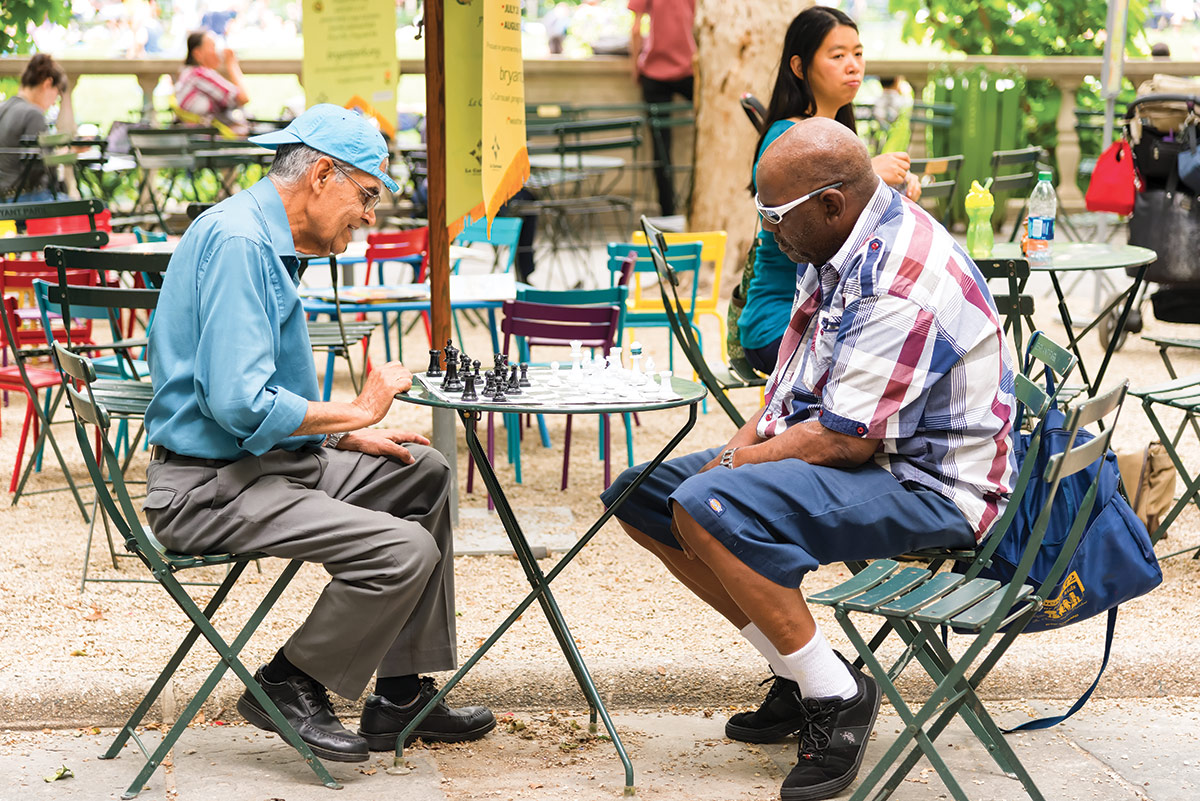
Age Friendly NYC will engage a new generation of public health practitioners in understanding successful aging in an urban environment.
Last July, Dean Ayman El-Mohandes and Jo Ivey Boufford, then President of the New York Academy of Medicine (NYAM), initiated an exciting collaboration to advance opportunities for CUNY SPH students and faculty to contribute to social justice for older adults and healthy aging initiatives in New York City through Age-friendly NYC. Age-friendly NYC is a one-of-a-kind partnership between the Office of the Mayor, the New York City Council, and the New York Academy of Medicine that works to identify and catalyze improvements to enable older people to access, enjoy, and contribute to city life.
As the population of New York City grows older—with adults ages 60 and above projected to account for 20.6 percent of the city’s population by 2040—Age-friendly NYC uses the Active Aging Policy Framework developed by the World Health Organization to reduce or eliminate barriers to optimal social, physical, and economic participation. The partnership with NYAM will contribute to the evidence base for age-friendly interventions, help to refine and retool interventions as appropriate, and encourage faculty and emerging professionals to focus on reducing disparities in healthy aging in an urban environment.
“The New York Academy of Medicine is pleased to partner with CUNY SPH to build the evidence base for the age-friendly communities model currently being implemented in over 500 localities across the world and to advance the spread and scale of age-friendly interventions throughout New York City,” Boufford says. “Through this collaboration, we look forward to engaging a new generation of public health practitioners about successful aging in an urban environment today.”
The timing of the new NYAM-SPH partnership coincided with the release of Mayor Bill de Blasio’s July report, Age-friendly NYC: New Commitments For a City For All Ages, which was intended to help meet the demands of this demographic shift.
“New York would not be the city it is today without the invaluable contributions of our senior citizens—a debt we are paying down with programs to help them age in place,” said de Blasio. “The initiatives outlined in Age-Friendly NYC will build on the progress we have made in meeting the needs of our growing community of older New Yorkers.” 1

As NYC’s population ages, it’s more important than ever before to expand the body of research exploring the health and well-being of older people.
The near doubling of life expectancy in the last century is a true public health success story. Yet emerging challenges associated with an aging population require our urgent attention. Not all older adults share the same prosperity and progress. Life span disparity between the rich and the poor has more than doubled since the 1970s and continues to grow. Today, for men born in 1950, the difference in life span between the top income 10 percent and the bottom income 10 percent is 14 years, for women, the gap is 13 years. Public health attention is crucially needed to address this social injustice.
In US cities such as NYC, as well as cities across the globe, public health professionals are partnering with communities to build and sustain intersectoral urban infrastructure that can meet the needs of our expanding older populations. While there have been numerous efforts to identify indicators of an age-friendly community, including AARP’s Livability Index and the WHO Kobe Center’s Core Indicators, there have been few studies of how age-friendly initiatives improve the health and well-being of older people. SPH faculty and students, at the forefront of NYC age-friendly initiatives, have pioneered research with community-based organizations documenting the connections between neighborhoods and healthy aging. For instance, Professors Marianne Fahs and William Gallo, working with graduate students and fellows, found that neighborhood characteristics such as walkability, perceived safety, and social cohesion are associated with positive health indicators including nutritional security and hypertension management.
Today, our formal collaboration with NYAM will allow SPH students and faculty to be involved in developing environments and implementing policies and programs that are responding to the public health challenges of healthy urban aging.
“The aging of the population is one of our biggest public health challenges,” says El-Mohandes. “With this exciting collaboration, SPH students and faculty will have firsthand opportunities to contribute innovative research and practice that can impact positively the health and well-being of older adults, which increases the quality of life for all.”
Potential collaborative projects include: 1) Evaluation of built environment interventions to improve walkability; 2) Evaluation of programs to increase access to physical activity in age-neutral spaces; 3) Partnerships with Community Boards to contribute to district assessments and action plans, including conducting surveys and town hall meetings using Age-friendly NYC assessment tools spanning the Eight Domains of an Age-friendly Community; 4) Comparative studies of aging as experienced by different immigrant groups (over 50% of NYC older people were born outside the US), analyzing indicators such as access to resources, informal and formal support systems, health literacy and outcomes, and perception of the aging process; and 5) Evaluation of age-friendly local business initiatives to inform local economic development efforts.
Developing new public health leadership and evidence to support older adults in living healthier lives and remaining fully engaged in their communities will have a significant positive impact on the quality of life of the community as a whole.
1. Press Release: http://www1.nyc.gov/office-of-the-mayor/news/494-17/de-blasio-administration-releases-age-friendly-nyc-new-commitments-city-all-ages













